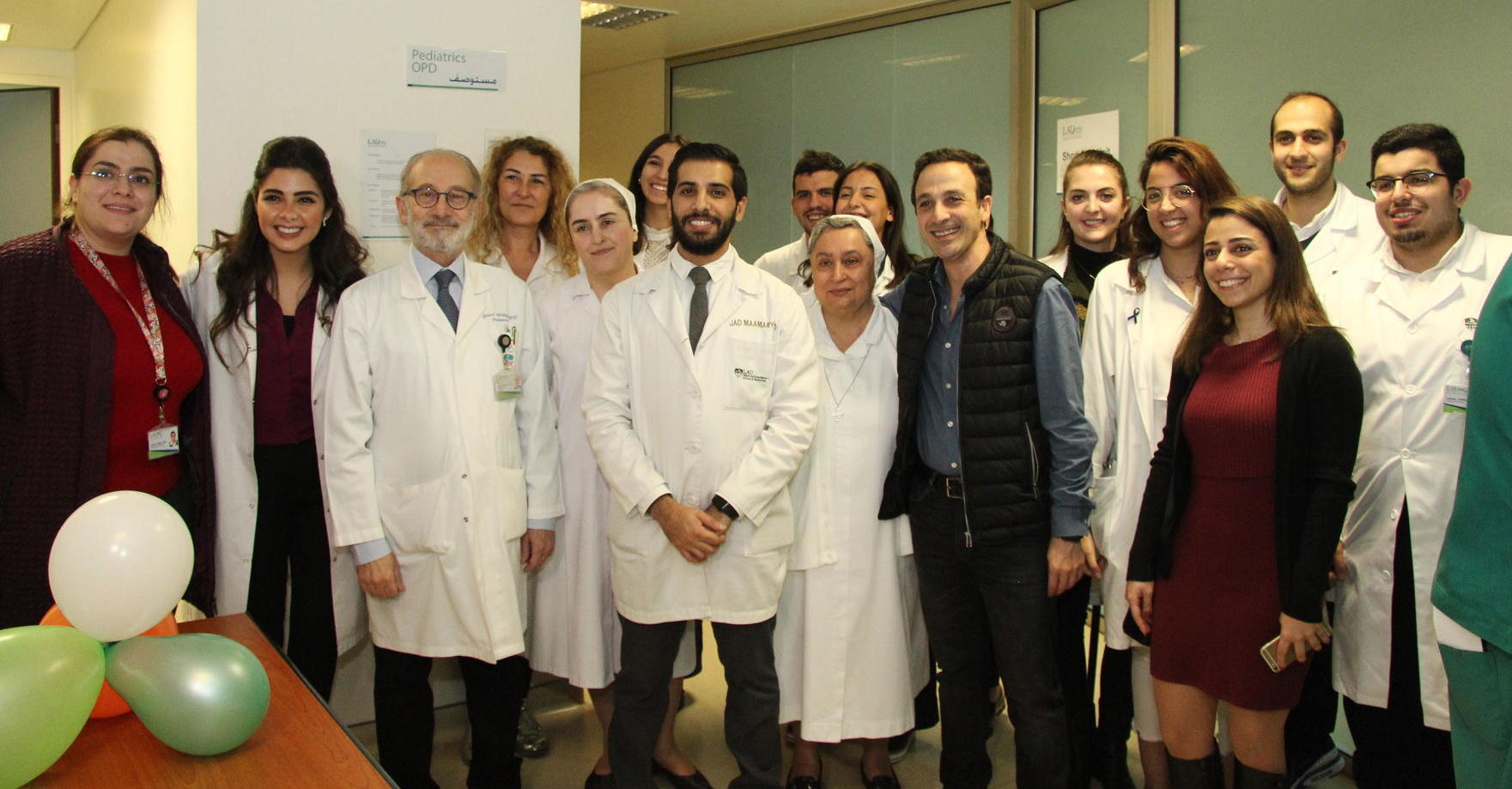Outpatients, Welcome In
More in this issueLAU Medical Center-Rizk Hospital cares for the community with its outpatient clinics
Doctors, residents and stakeholders spoke excitedly about the state-of-the art facilities that would serve the community’s youngest patients, as they attended the inauguration of the new Pediatric Outpatient Department at the LAU Medical Center-Rizk Hospital in Beirut on February 16.
Outpatient Departments, also called outpatient clinics or OPDs, are critical for patients. They offer diagnostic services, treatments and even small procedures without necessitating an overnight stay at the hospital. They are also an important part of the larger hospital’s operations, as they are integrated with in-patient services and are staffed by doctors who move back and forth between the clinics and the internal hospital. And for patients, OPDs are a less-expensive alternative to independent clinics.
But there are benefits for physicians, medical faculty and residents too. According to Dr. Rajaa Chatila, assistant dean for Graduate Medical Education at the Gilbert and Rose-Marie Chagoury School of Medicine, OPDs offer vital real-world experience to physicians-in-training.
“Residency training revolves entirely around translating basic theoretical knowledge acquired in medical school into solving the actual medical problems of patients,” she said. “Working in OPDs helps residents acquire new knowledge needed in medical care, such as certain surgical and procedural skills, as well as communication skills and professionalism overall.”
It is this combination of established expertise and fresh medical talent that Dr. Gerard Wakim, acting chair of the Department of Pediatrics at the medical school, says sets the department apart. “The OPD provides more complete pediatrics training to our residents because they learn how to work as responsible doctors under the supervision of attending physicians,” he said.
“It also provides essential continuity of patient care and involves them in providing services to those in need based on the conviction that we care about all patients equally,” he added.
The medical center’s Pediatric OPD will be staffed full time by medical residents from the School of Medicine. Second- and third-year residents will work under the guidance of attending physicians, while first-year residents will be supervised more rigorously while on duty. Residents will be working under Wakim, alongside Chief Resident of Pediatrics Dr. Nour Youssef.
Like Chatila, Youssef believes that OPDs are an opportunity for new doctors to practice medicine in different settings with different demands. “Our mission is to provide training for pediatricians to advance in both academic and ethical perspectives.”
“Working at OPDs is the most important tool for residents and students,” agreed Jad Maamary, a pediatric resident with the medical center. “We are not observers, as we would be in the classroom, but rather we are examining, diagnosing and prescribing.”
The new Pediatric OPD joins the Outpatient Ophthalmology Clinic, which is already established at the hospital. A Family Medicine OPD is also in the works, Chatila said.
For Maamary, the new department is not only a much-needed treatment and training resource, but also an essential part of the community. “OPD clinics are crucial for every residency program, as it is an essential step in us becoming autonomous physicians and a great way to give back to society.”
